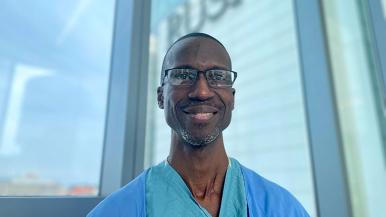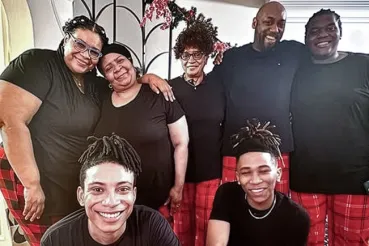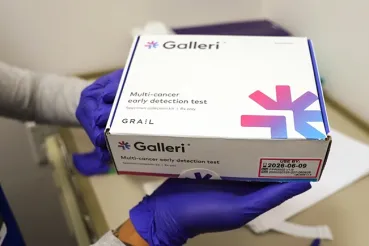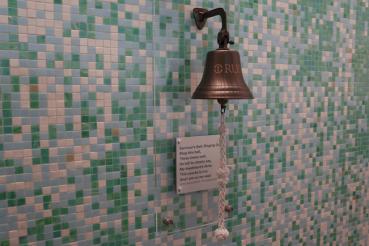At 44, Ron Exford is decades younger than the average person diagnosed with esophageal cancer. The Gary, Indiana, native and married father of three doesn’t have a history of smoking or heavy drinking. He’s never had gastric reflux, chronic heartburn or GERD — all significant risk factors for esophageal cancer.
“Ron had none of the above,” said Christopher Seder, MD, thoracic surgeon at RUSH University Medical Center, and one of Exford’s doctors. “He was just unlucky.”
Esophageal cancer is cancer of the esophagus, the tube stretching from the mouth to the stomach. Most cancers begin in the cells lining the esophagus. It’s the sixth most common cause of cancer deaths worldwide.
“It’s a quite aggressive cancer,” Seder said. “Most people are not symptomatic until it has enveloped and blocked off the esophagus. By that time, it has often spread to the lymph nodes, making it harder to cure.”
'They know me'
In the summer of 2019, Exford realized he could no longer swallow food well and began having chest pains.
“At the time I was working in the ENT department, which was the perfect place to ask questions,” he said. “They recommended I go to a primary care doctor. In November 2020 I got a scope and they saw the cancer.”
The esophageal cancer diagnosis came after a lifetime of recurring but unrelated health problems for Exford, starting when he was 16 and included two kidney transplants.
“The Lord blessed me that I came through that,” he said. “I get breathing room, and then something else pops up.”
After 19 years at RUSH as a surgery technician, and a long history of doctors and hospitals, Exford knew that he wanted to be treated at RUSH.
“I thought, they know me, I know how they’ll treat me,” he said. “But everyone just went above and beyond. It just made it that much easier to get through it.”
Diagnosis-to-treatment time matters
Exford underwent chemotherapy and radiation before undergoing a minimally invasive esophagectomy, where a portion of the esophagus is removed and replaced with stomach tissue, using small incisions.
Seder said RUSH’s esophageal cancer treatment program takes a multidisciplinary approach — using chemotherapy, radiation, and surgery as well as genetic sequencing and immunotherapy where appropriate. They also emphasize speed in working with patients, using a nurse navigator to coordinate and shepherd patients through the system.
“We get back to you within 24 hours of when you call to see a health care provider,” he said. “We know that the time from diagnosis to treatment really matters.”
Exford is cancer-free now, and happy to have recovered from his ordeal. He said being treated at RUSH allowed him and his family to get extra support from his colleagues, something he’s immensely grateful for.
“The folks that I work with are awesome,” he said. “They helped me out so much. They sent cards, they came to see me, they helped my family out. I’m very grateful for my coworkers.”




